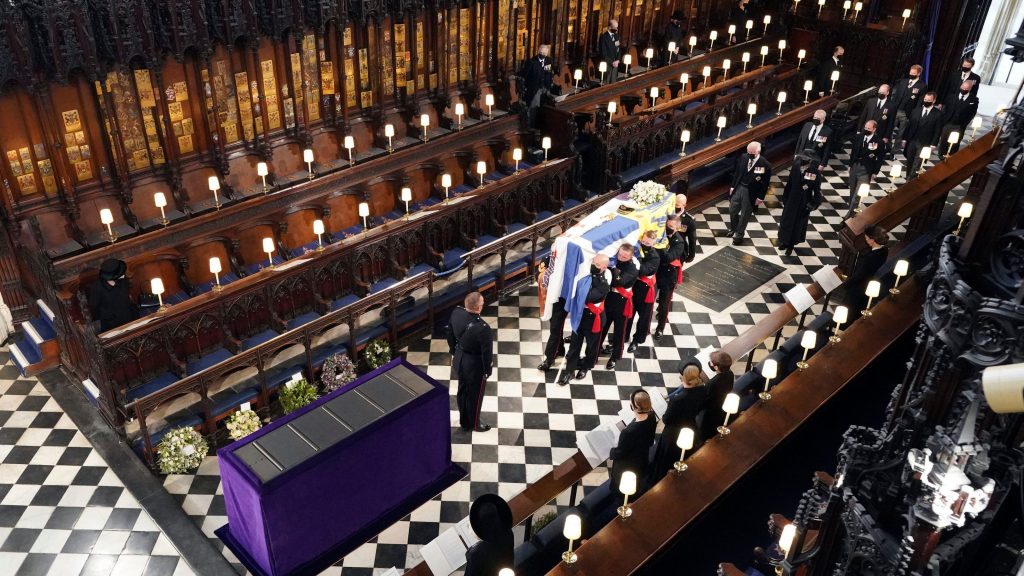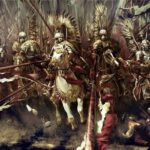Blog Post
The last glimmers of England’s Christianity shone through at Prince Philip’s funeral
By Jonathon Van Maren
The funeral of Prince Philip on Saturday at Windsor Castle was viewed by millions. It struck me as I was watching that for many watching the service, it would be their first introduction to Christian music and liturgy. Prince Philip’s life spanned not only the Second World War, the disintegration of the British Empire, and the defeat of global Communism, but also the near-total collapse of Christianity in the United Kingdom. If the number of those who identify as Christian in England continues at its current rate of decline, there will be none left by 2067.
Even the anemic Anglican Church is capable, on solemn occasions such as the death of the Duke of Edinburgh, of gathering the tattered rags of her dignity about her and summoning the strength to offer a glimmer of her former grandeur. Prince Philip’s short funeral featured the great British naval hymn “Eternal Father, Strong to Save,” based on Psalm 107 and also known as a prayer “For Those in Peril on the Sea.” It was the same hymn sung at the funeral of Philip’s beloved uncle Earl Mountbatten of Burma, who was killed by an IRA bomb on his fishing boat off the coast of Ireland in 1979.
“God Save the Queen” was also sung. It was impossibly sad to see the little note written by “Lillibet” to the man she called “my strength” protruding from the flowers atop his casket. While her children and grandchildren walked behind the Land Rover carrying the Duke to the church, the Queen rode in a black car. Emerging from the car, the Queen walked the steps of St. George’s Chapel alone. The Chapel is the final resting place of Charles I, Henry VIII, his third wife Jane Seymour, and other royals, buried in the vaults beneath the choir. Philip’s casket, borne by members of the military he was devoted to, paused on the steps for a national moment of silence to remember his life.
Prince Philip planned his own service, including the selection of religious music. His interest in theology often surprises people, but when I emailed Professor Ian Bradley, Emeritus Professor of Cultural and Spiritual History at the University of St. Andrews and the author of God Save The Queen: The Spiritual Heart of the Monarchy, he sent me some of his memories of Prince Philip (which have been published elsewhere in the past several days, as well.) The Queen’s Christianity is well-known—lesser-known is the fact that it was her husband who persuaded her to talk about it in her Christmas addresses, and that Philip himself had a keen interest in theology “and an impressively detailed knowledge of the Bible.”
He constantly took notes during sermons, Bradley recalled: “As I can testify from personal experience, discussions with him on the finer points of biblical exegesis could go on well into the evening.”
As Bradley noted in his obituary in Tablet Magazine: “Although noted for eschewing political correctness and stating his mind forcibly, he had a natural courtesy and kindness and never sought to give offence. The image so often perpetrated in the media of him as a rather blimpish philistine could not have been further from the truth. He had a lively interest in the arts and a deep knowledge and affection for twentieth century English poetry, of which he could quote substantial chunks by heart. His considerable sense of humour complemented that of the Queen and was undoubtedly a strong contributor to their exceptionally happy marriage.”
The Duke’s funeral banished, for just a moment, the Royal soap opera that has been unfolding over the past several years. The pomp, the pageantry, the ancient church and the Last Post—these things still have the power to silence, albeit briefly, the most devout secularist. I noted too that Charles, the Prince of Wales, cut a solemn figure as he walked behind his father’s casket. After decades of scandal and embarrassment, his mother’s longevity has allowed him to achieve the dignity that comes only with age, making the idea of his accession seem somewhat less ludicrous.
The passing of a man who lived for nearly the entire twentieth century in the public eye reminds us all, once again, that even the longest life is a whisper. Prince Philip’s funeral reminded us of the egalitarianism of death and the imminence of the only truly universal human experience. Perhaps the service, for which history seemed to pause for just a moment, caused a few of the inhabitants of our secular age to wonder: What then?









Thank you Johnathon for a well-written and well-observed perspective.
The decline in English Christianity in the last century has been unspeakably sad. Even in the past century there have been literary and theological giants in the Church of England–C.S. Lewis, T.S. Eliot (a cousin of mine, distantly by blood, less distantly by marriage), Peter Toon (with whom I corresponded only days before he joined the Church Triumphant), J.I. Packer, N.T. Wright and others. When one thinks back to the early Anglican leaders and thinks, “This is the church tradition that gave us the Book of Common Prayer and the King James Bible,” one’s eyes fill with tears. Though a Lutheran, not an Anglican, I used Anglican chant for the psalms in my days of active ministry. There’s still no one who can do “big” in a church service the way the Anglicans can, but it has become a “whited sepulchre” both in England and in the US; small groups of traditional Anglicans hold to their historic teachings, but they are dying remnants of a dying church.
Thoughtful, respectful, detailed and informative. Beauty tinged with deep sadness. I wish I could articulate more of what it made me feel and think. Thank you
Remember,. Philip was once Greek Orthodox………
Too bad he and other believers are not more obedient with Matt. 28…maybe the faith would be growing? Need more witness less tradition!